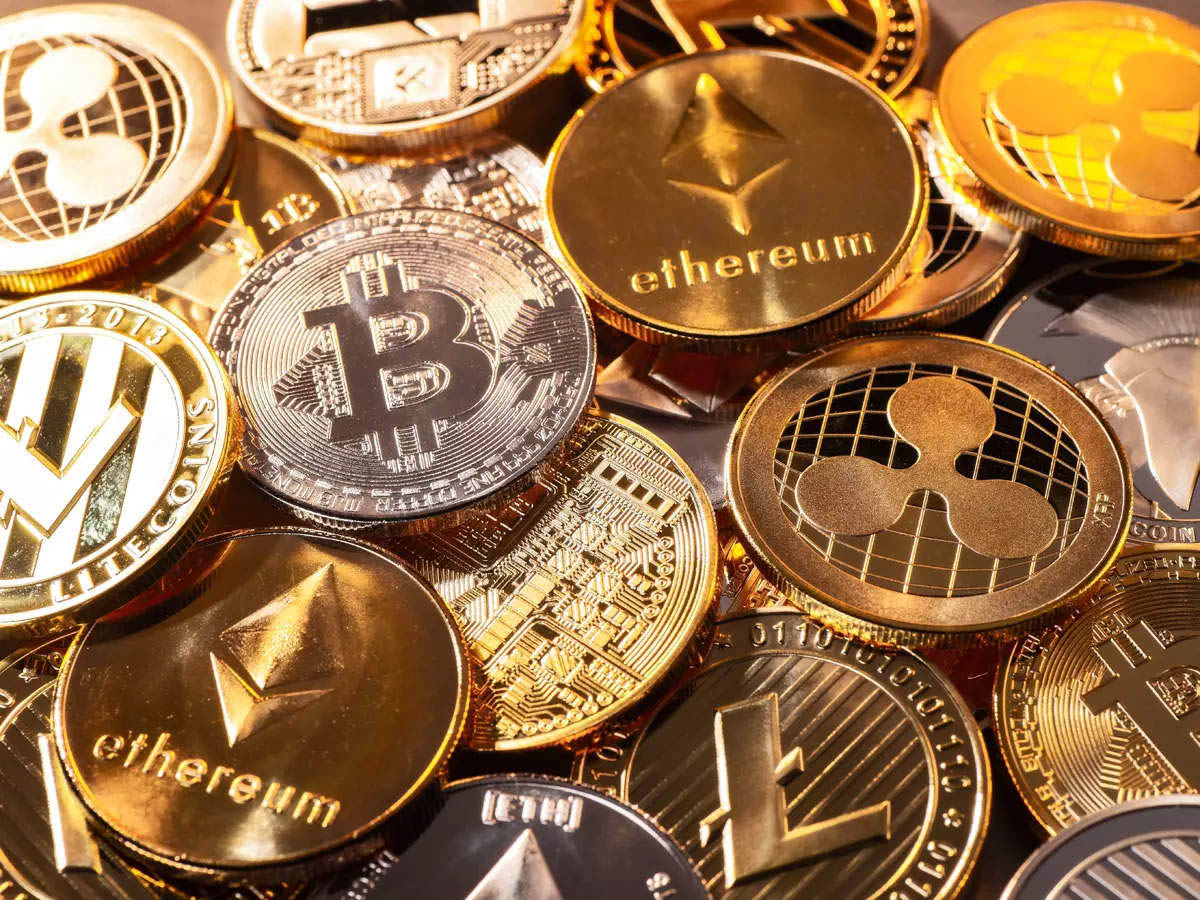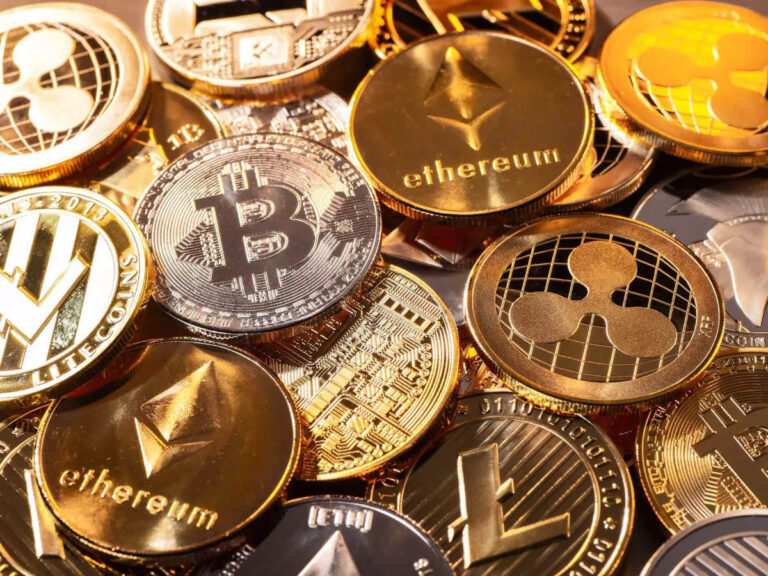
Dublin, Oct. 18, 2024 (GLOBE NEWSWIRE) — The “Blockchain Gaming – Global Strategic Business Report” report has been added to ResearchAndMarkets.com’s offering.
The global market for Blockchain Gaming was estimated at US$8.5 Billion in 2023 and is projected to reach US$314.3 Billion by 2030, growing at a CAGR of 67.6% from 2023 to 2030. This comprehensive report provides an in-depth analysis of market trends, drivers, and forecasts, helping you make informed business decisions.
Blockchain gaming is emerging as a disruptive force within the broader gaming industry, offering players unprecedented control over in-game assets and transforming the traditional gaming experience into one that is decentralized and player-centric. But what exactly sets blockchain gaming apart, and why is it poised to redefine how games are played and monetized? Unlike conventional gaming models, which restrict ownership of in-game assets to the developer’s ecosystem, blockchain games utilize decentralized ledgers to provide true digital ownership of items such as weapons, skins, characters, and virtual land.

This shift is enabled through the integration of non-fungible tokens (NFTs) and smart contracts, which secure the provenance and authenticity of digital items, allowing players to buy, sell, or trade these assets independently of the game itself. As the gaming community becomes increasingly aware of these possibilities, blockchain-based games are attracting a diverse group of participants, from casual gamers and crypto enthusiasts to professional e-sports players, positioning the sector for explosive growth.
The growth in the blockchain gaming market is driven by several factors, primarily influenced by advancements in technology, changing consumer preferences, and evolving business models. One of the primary drivers is the growing adoption of decentralized technologies such as NFTs and cryptocurrencies, which are creating new economic opportunities for players and transforming traditional gaming models. The rise of the play-to-earn (P2E) concept is a key catalyst, as it has turned gaming into a potential source of income for players, attracting millions of users from around the world, particularly in emerging markets where such opportunities are especially appealing.
Another major factor is the increasing interest in the metaverse – a collective virtual space that integrates multiple virtual worlds, games, and social experiences. As blockchain gaming becomes a foundational element of the metaverse, the demand for interoperable games and cross-platform assets is surging, driving innovation and market expansion. Additionally, the growing investment from venture capital firms and the entry of major tech companies are fueling the development of new games, platforms, and technologies, accelerating the sector’s growth. The expansion of decentralized finance (DeFi) within blockchain gaming is also contributing to market growth, as players can now engage in staking, yield farming, and other financial activities within games, adding new dimensions to in-game economies.
Furthermore, increasing consumer demand for digital ownership and control over virtual assets is propelling the adoption of blockchain gaming, as players seek greater autonomy and the ability to trade or sell their in-game items for real-world value. These factors, combined with the ongoing integration of cutting-edge technologies like AI, AR/VR, and smart contracts, are driving the blockchain gaming market’s rapid evolution, positioning it as a transformative force in both the gaming and financial sectors.
What Are the Key Trends Shaping the Blockchain Gaming Market?
The blockchain gaming market is evolving rapidly, driven by innovations in technology, changing consumer behaviors, and a growing interest in decentralized digital economies. One of the most prominent trends is the rise of play-to-earn (P2E) games, where players earn cryptocurrencies or valuable NFTs as they progress through the game.
This model is disrupting traditional monetization strategies by creating direct financial incentives for players, enabling them to monetize their gaming time and skills. Another key trend is the integration of the metaverse concept, where blockchain games are not standalone experiences but interconnected worlds that allow players to interact, trade, and build across different virtual environments. This is fostering the development of expansive, shared universes where items and characters are interoperable across multiple games, creating a unified digital economy.
Additionally, the growing use of decentralized finance (DeFi) elements within blockchain games is reshaping in-game economies. Players can now stake their earnings, provide liquidity, or participate in governance decisions, adding layers of complexity and engagement that go beyond typical gameplay. There is also a strong push towards cross-platform and multi-chain compatibility, as developers aim to break down barriers between various blockchain ecosystems to reach a broader audience.
Furthermore, large traditional gaming companies are beginning to explore blockchain integrations, signifying a shift towards mainstream adoption. These trends are making blockchain gaming not only a frontier for entertainment but also a burgeoning financial ecosystem with immense potential for innovation and growth.
How Are Technological Advancements Transforming Blockchain Gaming?
Technological advancements are the backbone of the blockchain gaming revolution, enabling new levels of transparency, security, and user engagement that were previously unattainable in traditional gaming. One of the most impactful innovations is the evolution of non-fungible tokens (NFTs), which provide a secure, verifiable way to represent ownership of unique in-game assets. This technology allows players to truly own their digital items, which can be sold or traded independently of the game, creating a player-driven secondary market.
Another key advancement is the development of smart contracts, which automate transactions and enforce rules within games without the need for a central authority. These contracts can handle everything from complex in-game economics to the seamless transfer of assets between players, ensuring trust and fairness in decentralized game environments. Layer-2 scaling solutions, such as sidechains and state channels, are also emerging as critical technologies, addressing one of the biggest challenges in blockchain gaming – scalability. By reducing transaction costs and increasing throughput, these solutions are enabling real-time interactions and microtransactions, making blockchain games more accessible and enjoyable.
Moreover, advancements in virtual reality (VR) and augmented reality (AR) are beginning to merge with blockchain technology, creating immersive, player-owned virtual worlds where users can explore, interact, and build new digital experiences. Decentralized autonomous organizations (DAOs) are also gaining traction in blockchain gaming, empowering players to participate in game governance and development, thereby fostering deeper engagement and community-driven innovation. These technological developments are not only enhancing the functionality and appeal of blockchain games but are also pushing the boundaries of what is possible in the gaming industry.
Key Insights:
- Market Growth: Understand the significant growth trajectory of the Role Playing Games segment, which is expected to reach US$128.4 Billion by 2030 with a CAGR of a 67.8%. The Open World Games segment is also set to grow at 64.7% CAGR over the analysis period.
- Regional Analysis: Gain insights into the U.S. market, estimated at $2.2 Billion in 2023, and China, forecasted to grow at an impressive 63.6% CAGR to reach $42.9 Billion by 2030. Discover growth trends in other key regions, including Japan, Canada, Germany, and the Asia-Pacific.
Report Features:
- Comprehensive Market Data: Independent analysis of annual sales and market forecasts in US$ Million from 2023 to 2030.
- In-Depth Regional Analysis: Detailed insights into key markets, including the U.S., China, Japan, Canada, Europe, Asia-Pacific, Latin America, Middle East, and Africa.
- Company Profiles: Coverage of major players such as Animoca Brands, Dapper Labs Inc., double jump.tokyo Inc., and more.
- Complimentary Updates: Receive free report updates for one year to keep you informed of the latest market developments.
Key Questions Answered:
- How is the Global Blockchain Gaming Market expected to evolve by 2030?
- What are the main drivers and restraints affecting the market?
- Which market segments will grow the most over the forecast period?
- How will market shares for different regions and segments change by 2030?
- Who are the leading players in the market, and what are their prospects?
Key Attributes:
| Report Attribute | Details |
| No. of Pages | 238 |
| Forecast Period | 2023 – 2030 |
| Estimated Market Value (USD) in 2023 | $8.5 Billion |
| Forecasted Market Value (USD) by 2030 | $314.3 Billion |
| Compound Annual Growth Rate | 67.6% |
| Regions Covered | Global |
Key Topics Covered:
MARKET OVERVIEW
- Influencer Market Insights
- Blockchain Gaming – Global Key Competitors Percentage Market Share in 2024 (E)
- Competitive Market Presence – Strong/Active/Niche/Trivial for Players Worldwide in 2024 (E)
MARKET TRENDS & DRIVERS
- Rising Popularity of Play-to-Earn Models Drives Growth in the Blockchain Gaming Market
- Here`s the Story: How Integration of NFTs Expands the Addressable Market for Gamers and Collectors Alike
- Growing Interest in Decentralized Economies Propels Adoption of Blockchain-Based Game Ecosystems
- Technological Advancements in Smart Contracts Strengthen Business Case for Transparent and Automated In-Game Transactions
- Here`s How Cross-Platform Interoperability Generates Opportunities for Enhanced Player Engagement
- Rising Use of Decentralized Finance (DeFi) Features Boosts Market Potential for In-Game Tokenomics and Staking
- Expansion of Metaverse Projects Transforms Market Dynamics by Integrating Gaming with Virtual Worlds
- Emphasis on True Digital Ownership Sustains Demand for Blockchain-Based Asset Creation and Management
- Here`s How the Shift Towards Community-Driven Game Development Creates New Opportunities for Crowdsourced Innovation
- Growing Investment from Traditional Gaming Companies Spurs Innovation and Blurs Boundaries Between Conventional and Blockchain Games
- Here`s How the Emergence of DAO (Decentralized Autonomous Organizations) Governance Transforms Market Dynamics in Game Management and Development
- Rising Adoption of Layer-2 Scaling Solutions Enhances Efficiency and Reduces Costs for High-Transaction-Volume Games
FOCUS ON SELECT PLAYERS (Total 49 Featured)
- Animoca Brands
- Dapper Labs Inc.
- double jump.tokyo Inc.
- Horizon Blockchain Games Inc.
- Illuvium
- Immutable Pty. Ltd.
- LeewayHertz
- Maticz Technologies Private Limited
- Mythical Games
- Sara Technologies, Inc.
For more information about this report visit https://www.researchandmarkets.com/r/lr518s
About ResearchAndMarkets.com
ResearchAndMarkets.com is the world’s leading source for international market research reports and market data. We provide you with the latest data on international and regional markets, key industries, the top companies, new products and the latest trends.
Attachment
CONTACT:
CONTACT: ResearchAndMarkets.com
Laura Wood,Senior Press Manager
press@researchandmarkets.com
For E.S.T Office Hours Call 1-917-300-0470
For U.S./ CAN Toll Free Call 1-800-526-8630
For GMT Office Hours Call +353-1-416-8900

![]()
